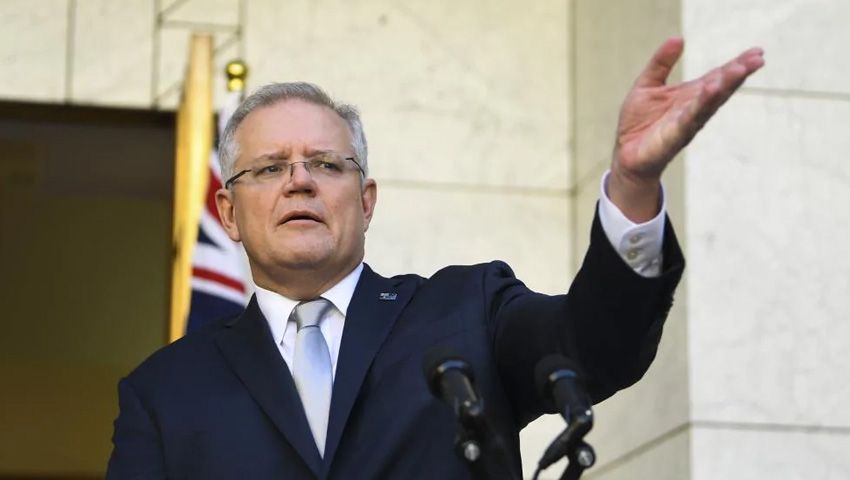Prime Minister Scott Morrison and Minister for Defence Peter Dutton have announced $38 billion would be invested in expanding the Australian Defence Force (ADF) by 30 per cent, increasing the number of personnel by 18,500 to an estimated 80,000 by 2040.
Under the plan, the ADF would command 6,000 more troops than the “critical minimum” recommended by Defence to provide “redundancy and resilience” to cover casualties in the event of an armed conflict.
This is set to represent the largest ADF force since the Vietnam War.
The plan, announced at Brisbane's Gallipoli Barracks on Thursday (10 March), will be rolled out across all warfighting domains and all states and territories.
The workforce growth will particularly focus on capabilities associated with the trilateral security partnership between Australia, United Kingdom and United States (AUKUS), as well as air, sea, land, space and cyber.
The announcement forms part of the 2020 Force Structure Plan (FSP) and has been assessed since the National Security Committee of cabinet approved the policy late last year.
“The first priority of my government is keep Australians safe and to do that we need a bigger ADF with more soldiers, sailors and airmen and women to operate the cutting-edge capabilities we’re getting to protect Australia,” Prime Minister Morrison said.
“Our world is becoming increasingly uncertain so it’s important we take steps now to protect our people and our national interest over the coming decades.
“You can’t flick a switch to increase your army, navy and air force overnight, growing the type of people and skills we need to face the threats of the future takes time, so we must start now so critical skills can be taught and experience gained.”
Minister Dutton said the plan is critical to delivering and operating advanced capabilities required to secure Australia’s strategic environment, protect the nation’s interests and build a “credible military force”.
“This growth in workforce and expertise will enable us to deliver our nuclear-powered submarines, ships, aircraft and advanced weapons. It will mean we can build warfighting capabilities in the domains of space, and information and cyber,” he said.
“It will also build the resilience we need in critical areas and enable our people to increase intelligence, information and communications capacity.
“Defence industry will also be fundamental to supporting Defence’s capability delivery and workforce growth to deliver current and enhanced technologies, systems and equipment.”
This comes just days after Prime Minister Morrison announced plans to develop a new naval base on Australia’s east coast to support the operation of the Royal Australian Navy’s future nuclear-powered submarines promised under the AUKUS agreement.
The new base is expected to include specialised wharfs, maintenance facilities, administrative and logistics support, personal amenities, and suitable accommodation for submarine crews and support staff, including visitors.
Brisbane, Newcastle and Port Kembla have been shortlisted among 19 locations reviewed by the government.
Defence has commenced consultations with the NSW and Queensland governments, as well as relevant local authorities.

Charbel Kadib
News Editor – Defence and Security, Momentum Media
Prior to joining the defence and aerospace team in 2020, Charbel was news editor of The Adviser and Mortgage Business, where he covered developments in the banking and financial services sector for three years. Charbel has a keen interest in geopolitics and international relations, graduating from the University of Notre Dame with a double major in politics and journalism. Charbel has also completed internships with The Australian Department of Communications and the Arts and public relations agency Fifty Acres

